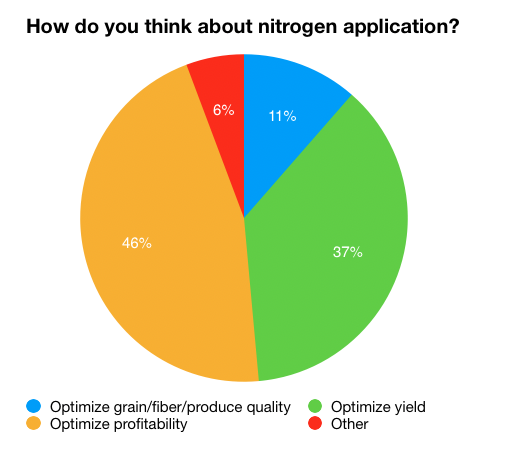Nitrogen applications usually target one or more of the following goals:
- Optimise yield
- Optimise profitability
- Optimising produce quality e.g. grain, cotton
Different countries have different approaches that were shaped by the differences in their growing conditions (soil, rainfall), economies (availability of government subsidies), or environmental policies. Here is the summary from our experience interacting with customers on the ground as to how they think about nitrogen application.
- USA: applying N fertilisers at a rate that is required for the plant to reach a yield goal, based on Stanford equation - an approach also known as “expected yield”, or “yield based”, developed in 2005-06 to maximise the return on nitrogen fertiliser cost across the corn belt.
- Australia: qualitative approach, apply N fertilisers to targeting a certain protein content in grain crops or lint quality in cotton; yield-based calculations are also popular depending on the state.
- NZ and EU: N applications are first and foremost influenced by environmental policies, encouraging manage crop nutrient cycle in a more sustainable way, influenced by environmental policies targeting N removal and restricting the application on farms, therefore growers are mindful of their NUE, applying N only where it makes a difference.
- Latin America: soil sampling is the backbone of N recommendations including the addition of the remote sensing data to understand where to take the representative samples.
- Smallholder farms in Asia and rest of world: variable rate machinery is largely inaccessible due to its high costs, and instead N applications are usually done manually, in a less structured way.

There is no right or wrong way to do variable rate nitrogen application - the diversity in approached shows that nutrient management practice needs to be relevant to local growing conditions as well as their economic realities.



